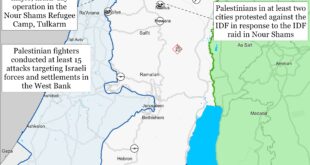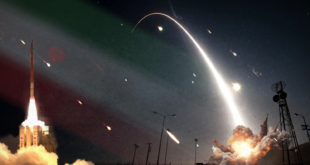Peshmerga forces have been deployed to a part of Iraq’s disputed territories because of “increased threats” of attacks by the Islamic State (ISIS), the Kurdistan Regional Government (KRG) peshmerga ministry said on Wednesday.
Peshmerga have been deployed to the Makhmour and Qarachogh areas as a result of security threats imposed by ISIS, and not to face off with Iraqi forces, the Ministry of Peshmerga said on Wednesday.
“We announce that no illegal deployment of the Peshmerga forces has been made to face Iraqi forces,” read a statement from the ministry.
“What happened was as a result of a recent increase of ISIS threats in the Mount Qarachogh and Makhmour areas.”
Despite its territorial defeat in Iraq in 2017, ISIS remains active in Iraq – particularly in territory in the north and west of the country that is disputed by Erbil and Baghdad.
The extremist militants claimed in its weekly propaganda newspaper al-Naba published on Thursday that it had killed and injured at least 176 people in 19 attacks in Iraq from January 21 to January 27.
According to ISIS propaganda outlet Amaq, the terror group carried out 1,422 attacks in Iraq in 2020, with the highest number of attacks recorded in Diyala province. A total of 2,748 people were killed as a result of the attacks, Amaq said earlier this month.
Iraq’s state-sponsored Popular Mobilization Forces (PMF, or Hashd al-Shaabi) said that five of its members were killed in a clash with ISIS militants in Diyala province on Tuesday. At least 11 PMF fighters were killed in an ISIS ambush on January 23.
After ISIS claimed responsibility for the double suicide bombing in Baghdad of January 28 that killed more than 30 people, Iraqi prime minister and commander in chief of the country’s armed forces Mustafa al-Kadhimi announced the launch of operation “Revenge of the Martyrs”.
Iraqi forces have since killed three ISIS leaders in the span of one week – among them Abu Yaser al-Issawi, who referred to himself as the deputy caliph and ISIS’ so-called governor, or Wali, of Iraq.
Issawi’s killing was to fulfill a promise to the “families of the dead in Tayaran Square, and the PMF [Popular Mobilization Forces],” Yehia Rasool, spokesperson for Kadhimi in his capacity as commander in chief, told state media last week.
 Eurasia Press & News
Eurasia Press & News



